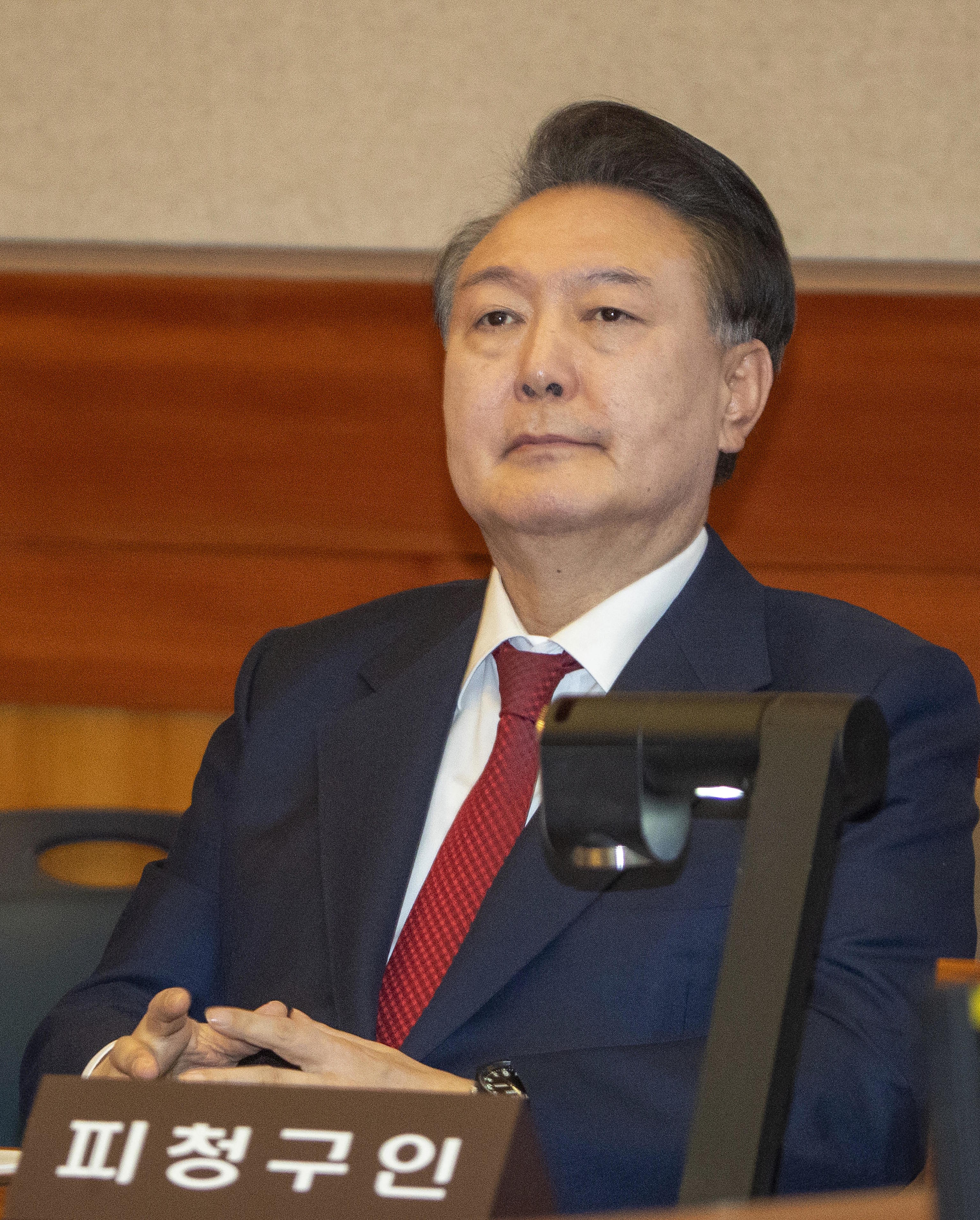For the first time in the history of South Korea, a sitting president is being tried in a criminal court. On Thursday, a new legal battle began in Seoul for Yoon Suk Yeol, the leader who orchestrated an attempted coup when he declared a short-lived martial law in December. Yoon, accused of insurrection and abuse of power, could face a life sentence. Even the death penalty if determined by the judges of the Central District Court in the South Korean capital.
Yoon, a 64-year-old former prosecutor, appeared at an initial hearing that lasted only 13 minutes and did not speak. His lawyer did speak, stating that the "president's martial law aimed to thwart a legislative dictatorship" by the opposition, which holds the majority in Parliament.
This new process, which could last for six months, runs parallel to the impeachment trial against Yoon being held in the Constitutional Court, which must confirm or dismiss the impeachment voted by the South Korean Parliament. If Yoon is formally removed from office, early elections must be held within the following 60 days.
So far, the conservative leader has refused to be questioned by the anti-corruption investigators. In the Constitutional Court, which on Thursday held the tenth hearing of the case, Yoon has previously defended the conspiracy theory he used to justify martial law, a theory embraced by his most radical followers: that North Korean communist forces, along with Chinese agents, had infiltrated the main opposition party and were planning to overthrow it.
During the impeachment hearings, Yoon denied that after imposing the authoritarian decree, he had sent troops and police officers to Parliament to arrest lawmakers. It is worth noting that it was opposition lawmakers who, on that tumultuous night of December 3, managed to breach the military cordon and enter the legislature to unanimously reject the Yoon law, forcing his cabinet to lift it.
The imposition of martial law, the first in South Korea in over 40 years, lasted only six hours. Yoon claims that sending troops and police forces was aimed at maintaining order. However, military unit commanders have stated that it was the president who ordered them to forcibly remove and arrest the parliamentarians.
More than two months after the failed coup, Yoon's suspended supporters continue to demonstrate in Seoul because they are convinced that Yoon's only intention was to save South Korean democracy from communist forces seeking to turn the country into a dictatorship; that the president had declared martial law, under which he took control of institutions and suppressed press freedom, as it was the only tool available to protect his people.
Yoon has been detained in a facility on the outskirts of Seoul since January. At the end of last month, he was charged with insurrection, one of the few criminal charges for which a president does not have immunity. Under South Korean law, prosecutors can keep an accused person in custody for up to six months after the charge, meaning Yoon could remain detained until July unless the court grants him bail or revokes his arrest. Legal experts in the country believe it is unlikely that Yoon will face the death penalty because there were no deaths or injuries during the disturbances following the declaration of martial law.
Four other former South Korean leaders, Chun Doo-hwan, Roh Tae-woo, Lee Myung-bak, and Park Geun-hye, have also faced criminal proceedings. However, none of them were in office, even in an acting capacity, during their trials. The most recent case was that of former President Lee, accused in April 2018 of 16 criminal charges, including embezzlement and bribery. In its ruling, the court sentenced her to 24 years in prison. The corruption investigation against Lee was led by Yoon during his time as a prosecutor.
